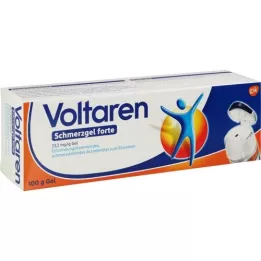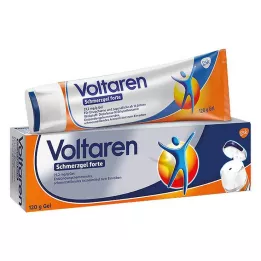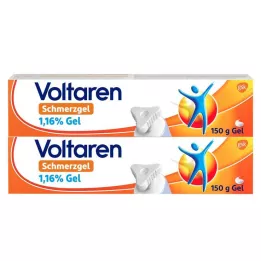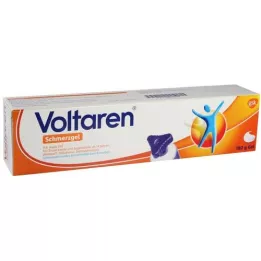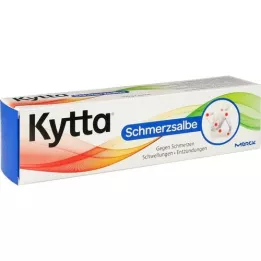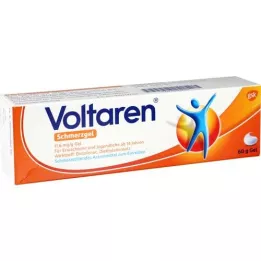IBUPROFEN AL directly 200 mg powder to take, 20 pcs
IBUPROFEN AL direkt 200 mg Pulver zum Einnehmen
Manufacturers: ALIUD Pharma GmbH
PZN: 15460718
Dosage: Pulver
Content: 20 St
Reward Points: 61
Availability: In stock
$7.69
$5.38
from German pharmacies to your address
Instructions for use for IBUPROFEN AL directly 200 mg powder to take, 20 pcs
Ibuprofen al directly 200 mg of powder
For use in adults, adolescents and children from 20 kg body weight (from 6 years).
Active ingredient: ibuprofen.
For short -term symptomatic treatment from light to moderately severe pain, fever.
Note: contains isomalt. Do not apply longer for pain or fever without medical advice than specified in the package insert!
Read the package supplement and ask your doctor or pharmacist for risks and side effects.
ALIUD PHARMA® GmbH, Postfach 1380, 89146 Laichingen
As of: December 2020
Detailed instructions for IBUPROFEN AL directly 200 mg powder to take, 20 pcs
Field of use
- Ibuprofen is a pain relieving and feverish drug (non-steroidal anti-rheumatics [NSAR]).
- This medicine is indicated for brief symptomatic treatment of
- slight to moderate pain
- Fever.
- The medicine is used in children from 20 kg body weight (from 6 years), adolescents and adults.
- If you don't feel better or worse, contact your doctor:
- after 3 days with children and adolescents.
- after 3 days in the treatment of fever or after 4 days in the treatment of pain in adults.
Active ingredients / ingredients / ingredients
200 mg ibuprofen
Acesulfam, potassium salt auxiliary material (+)
Citronic acid, water -free auxiliary material (+)
Glycerol Disteart Hedge substance (+)
645 mg isomalt auxiliary material (+)
Lemon aroma hedge material (+)
Aroma fabrics, natural and natural identical auxiliary substances (+)
Maltodextrin auxiliary substance (+)
alpha-tocopherol auxiliary material (+)
Contradictions
- The medicine must not be taken,
- if you are allergic to ibuprofen or one of the other components of this drug.
- if you have reacted in the past with the cramp of bronchial muscles (bronchospasm), asthma attacks, nasal mucosal swelling, angioedema or skin reactions after taking acetylsalicylic acid or other non-steroidal anti-rheumatics (NSAR)
- in the case of unexplained blood formation disorders
- in the event of existing or repeated stomach/duodenum ulcers (peptic ulcers) or bleeding in the gastrointestinal tract (at least 2 different episodes of proven ulcers or bleeding)
- in the case of gastrointestinal bleeding or breakthrough (perforation) in the history in connection with previous therapy with NSAID
- for brain bleeding (cerebrovascular bleeding) or other active bleeding
- if you suffer from severe liver or kidney dysfunction
- if you suffer from severe heart failure (heart failure)
- in the event of heavy drying (dehydration; by vomiting, diarrhea or inadequate fluid intake)
- in the last 3 months of pregnancy
- in children below 20 kg body weight or under 6 years, since this dose strength is not suitable due to the higher active ingredient content.
dosage
- Always take this medicine exactly after consultation with your doctor or pharmacist. Ask your doctor or pharmacist if you are not sure.
- The recommended dose is:
- The applicable ibuprofend dose depends on the weight of the child. In children and adolescents, the recommended dose is 7 - 10 mg / kg body weight as a single dose, up to a maximum daily dose of 30 mg / kg body weight.
- Body weight (age): 20 kg to 29 kg (6 - 9 years)
- Single dose: 200 mg ibuprofen (1 bag)
- Maximum daily dose: 600 mg ibuprofen (3 bags)
- Body weight (age): 30 kg to 39 kg (10 - 11 years)
- Single dose: 200 mg ibuprofen (1 bag)
- Maximum daily dose: 800 mg ibuprofen (4 bags)
- Body weight (age): >/= 40 kg (adults and adolescents from the age of 12)
- Single doses: 200 - 400 mg ibuprofen (1 - 2 bags)
- Maximum daily dose: 1,200 mg ibuprofen (6 bags)
- The time interval between the doses depends on the symptoms and the maximum daily dose. The time interval should be at least 6 hours. The recommended maximum daily dose must not be exceeded.
- Ibuprofen is indicated for short -term treatment.
- You can reduce the occurrence of side effects by using the lowest effective dose via the shortest period required for symptom control.
- Application in children and adolescents
- If this drug is required for children and adolescents for more than 3 days or if the symptoms worsen, medical advice should be obtained.
- If this drug is taken for more than 3 days or in pain for more than 4 days or if the symptoms worsen in adults, medical advice should be obtained.
- If you have taken a larger amount than you should
- If you have clearly exceeded the recommended dosage, please see for medical help immediately.
- The symptoms after acute overdose with ibuprofen are generally limited to abdominal pain, nausea, vomiting and diarrhea. Ear noise, headache, dizziness, balance disorders (vertigo) and gastrointestinal bleeding can also occur. Severe poisoning can lead to drowsiness, excitation, excess of consciousness, coma, seizures, myoclonic cramps in children, blood pressure drop, reduced breathing (respiratory depression), bluish discoloration of the skin, metabolic acidification of blood (metabolic acidosis), increased bleeding, acute kidney failure and liver damage. Asthmatics can deteriorate the asthma.
- If you have forgotten the intake
- Do not take the double amount if you have forgotten the prior intake.
- If you have any further questions about taking this medicine, please contact your doctor or pharmacist.
Taking
- To take.
- The powder does not have to be taken together with liquid; The powder dissolves on the tongue and is swallowed with the saliva. This dosage form can be used in situations in which no liquids are available.
- In patients with sensitive stomach, it is recommended to take the medicine during meals.
Patient information
- Warnings and Precautions
- Please speak to your doctor or pharmacist before taking this preparation:
- in the case of a congenital blood formation disorder (e.g. acute intermittent porphyria)
- for certain diseases of the immune system (systemic lupus erythematosus and mixed collagenosis)
- for gastrointestinal diseases or chronic inflammatory intestinal diseases (ulcerative colitis, Crohn's disease)
- with limited kidney or liver function
- with drying out
- for high blood pressure or heart failure (heart failure)
- in allergies (e.g. skin reactions to other medicines, asthma, hay fever), nasal polyps, chronic swelling of the nasal mucosa or chronic, airways narrowing airways, since they then have an increased risk of the occurrence of a hypersensitivity reaction
- if you recently undergone a larger operation.
- Side effects can be reduced by using the lowest effective dose via the shortest period required for symptom control.
- Security in the gastrointestinal tract
- The simultaneous use of ibuprofen with NSAID, including selective cyclooxygenase-2 inhibitors, should be avoided.
- Older patients:
- In older patients, side effects occur more frequently after using NSAR, in particular bleeding and breakthroughs in the stomach and intestinal area, which may be fatal.
- Bleeding of the gastrointestinal-Tracts, ulcers and breakthroughs (perforations):
- Bleeding of the gastrointestinal tract, ulcers and perforations, also with a fatal outcome, were reported during treatment with all NSAIDs. They occurred with or without prior warning symptoms or serious events in the gastrointestinal tract in the prehistory at any time of therapy.
- The risk of the occurrence of gastrointestinal bleeding, ulcers and breakthroughs is higher with increasing NSAR dose, in patients with ulcers in the history, especially with the complications bleeding or breakthrough, and in older patients. You should start treatment with the lowest available dose. Please speak to your doctor because combination therapy with protective medicinal products (e.g. misoprostol or proton pump inhibitor) could be considered. This also applies if you also take low-dose acetylsalicylic acid (Aspirin) or other active ingredients that can increase the risk of gastrointestinal diseases.
- If you have a history of side effects on the gastrointestinal tract, especially at older age, you should report any unusual symptoms in the abdomen (especially gastrointestinal bleeding), especially at the beginning of the therapy. Caution is advisable if you get medicines that can increase the risk of ulcers or bleeding, such as: B. Oral corticosteroids, anti-blood clotting medicines such as warfarin, selective serotonin reuptake inhibitors or platelet aggregation inhibitors such as acetylsalicylic acid.
- If there is gastrointestinal bleeding or ulcers during treatment with ibuprofen, the treatment is to be stopped and a doctor is consulted.
- If you have a gastrointestinal disease (ulcerative colitis, Crohn's disease) or in the past, you should use NSAR with caution because your condition can deteriorate.
- Effects on the cardiovascular system and on the brain vessels
- Anti -inflammatory agents/painkillers such as ibuprofen can go hand in hand with a slightly increased risk of heart attack or stroke, especially when using in high doses.
- Do not exceed the recommended dose or duration of treatment.
- You should discuss your treatment with your doctor or pharmacist before taking this medicine
- having heart disease, including heart failure (heart failure) and angina (chest pain), or a heart attack, a bypass operation, peripheral arterial disease (circulatory disorders in the legs or feet due to the narrowed or closed arteries) or any kind of stroke (including mini Had stroke or transitory ischemic attack, "tia").
- Heavy prints, diabetes or high cholesterol levels or heart diseases or strokes occur in their family history or when they are smokers.
- Skin reactions
- Under NSAR therapy, serious skin reactions with redness and bladder formation, some with a fatal outcome, were reported (exfediative dermatitis, Stevens-Johnson syndrome and toxic epidermal necrolysis/lyell syndrome). The highest risk of such reactions seems to exist at the beginning of therapy, since these reactions occurred in the majority of cases in the first month of treatment. At the first sign of rashes, mucosal defects or other signs of a hypersensitivity reaction, ibuprofen should be discontinued and the doctor should be consulted immediately.
- Use of ibuprofen should be avoided during a chickenpox infection (varicella infection).
- Effects on the kidneys:
- Ibuprofen influences the blood flow to the kidneys (kidney perfusion), which can also hold back (retention) of sodium, potassium and liquid in patients who have not previously suffered from kidney diseases. This can lead to fluid deposits (edema) or even heart failure or high blood pressure in susceptible patients. There are reports on acute kidney inflammation (interstitial nephritis) and damage to the kidneys. The highest risk is in patients with kidney dysfunction, heart failure or liver dysfunction, when taking it of drainage agents (diuretics) or so-called ACE inhibitors as well as in older patients. After stopping the NSAID therapy, the condition is generally restored before the start of treatment.
- Allergic reaction
- Severe acute hypersensitivity reactions (e.g. anaphylactic shock) are very rarely observed. At the first sign of a hypersensitivity reaction after taking/using ibuprofen, the therapy must be canceled. The symptoms corresponding, medically required measures must be initiated by expert persons.
- Other Information
- Ibuprofen, the active ingredient of this drug, can temporarily inhibit the platelet function (thrombocyte aggregation). Patients with blood clotting disorders should therefore be carefully monitored.
- If Ibuprofen is permanently involved, regular control of the liver values, kidney function and the blood count is required.
- When taking this drug before surgical interventions, the doctor or dentist must be asked or informed.
- You should drink enough during therapy, especially if fever, diarrhea or vomiting appear.
- NSAIDs like ibuprofen can disguise the symptoms of infections and fever.
- By using NSAID in combination with alcohol, the active ingredient side effects, in particular those that affect the gastrointestinal tract or the central nervous system, can be reinforced.
- The longer use of all kinds of painkillers against headaches can make them worse. If this is the case or if this is suspected, medical advice should be obtained and treatment can be broken off. The diagnosis of headache in the case of pharmaceutical use (Medication Overuse Headache, MOH) should be suspected in patients who suffer from frequent or daily headaches, although (or precisely because) they regularly take medicines for headaches.
- In general, the habitual intake of pain relievers, especially when combining several pain relieving active ingredients, can lead to permanent kidney damage with the risk of kidney failure (analgesic nephropathy).
- Please speak to your doctor or pharmacist before taking this preparation:
- Children and adolescents
- Ibuprofen must not be used in children below 20 kg body weight or under 6 years, since this dose strength is not suitable due to the higher active ingredient content.
- There is a risk of kidney dysfunction in dehydrated children and adolescents.
- Wateriness and ability to operate machines
- Since side effects such as fatigue, dizziness and visual disturbances can occur when using ibuprofen, the reaction capacity can be changed in individual cases and the ability to actively participate in road traffic and to operate machines can be impaired. This applies even more in combination with alcohol.
Pregnancy
- If you are pregnant or breastfeed, or if you suspect that you are pregnant or intend to become pregnant, ask your doctor or pharmacist for advice before taking this drug.
- Pregnancy
- If pregnancy is determined during the application of ibuprofen, the doctor must be notified. In the first 6 pregnancy months, you can only use ibuprofen after consultation with your doctor. In the last 3 months of pregnancy, ibuprofen may not be used due to an increased risk of complications for mother and child.
- Breastfeeding
- The active ingredient ibuprofen and its dismantling products only pass into breast milk in small quantities.
- Since adverse consequences for the infant have not yet become known, with short -term use in the recommended dose for treatment, an interruption of breastfeeding will generally not be necessary.
- Reproductive ability
- The medicine belongs to a group of medicinal products (non-steroidal anti-rheumatics, NSAID) that can affect the fertility of women. This effect is reversible (reversible) after stopping the drug/li>
Hints
Medicines Reviews
There are no reviews for this product.
Write a review
Popular in Pain & Inflammation
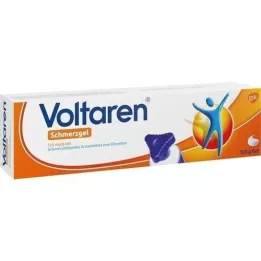
VOLTAREN Pain gel M. Blue Comfort Trehl., 150 g
VOLTAREN Schmerzgel m.blauem Komfort-Drehverschl.
$14.76 $25.99







